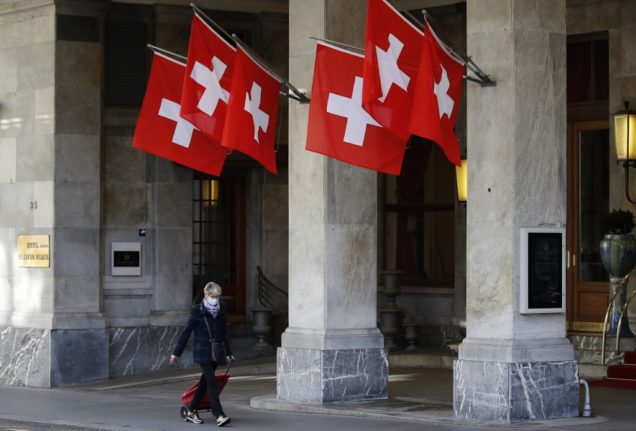In many countries where citizenship is granted at birth, the notion of ‘third-generation foreigners’ is an odd one.
But not in Switzerland.
As explained by the State Secretariat for Migration (SEM), third-generation refers to “foreign citizen whose grandparents emigrated to Switzerland”.
SEM specifies who fits into this category:
- At least one of your grandparents was born in Switzerland and can be proven to have acquired a right of residence here.
- At least one parent (has) acquired a permanent residence permit, (has) lived for at least ten years in Switzerland and attended compulsory schooling in Switzerland for at least five years.
- You were born in Switzerland and hold a permanent residence permit.
- You have attended compulsory schooling for at least five years in Switzerland.
- You are successfully integrated.
In addition, the third-generation person must file an application for citizenship before their 25th birthday.
“If you submit the application after your 25th birthday but otherwise meet all the requirements, you can apply for simplified naturalisation until 15 February 2023 provided you will still be under the age of 40 on that date”, SEM said.
READ MORE: I thought I was Swiss? How being mistaken as a national can put you on the road to citizenship
What is involved in ‘simplified naturalisation’ for third-generation foreigners?
Unlike the simplified procedure that applies to foreign spouses of Swiss citizens, the one for the third-generation is comparatively more onerous —though not as strict as the ‘ordinary’ process for all the other foreign nationals.
On February 12, 2017, 60.4 percent of voters approved the new law on facilitated naturalisation aimed to make it easier for some 25,000 third-generation foreigners to obtain the Swiss passport.
Three years after its entry into force, only 1,868 people have applied for citizenship.
READ MORE: Will Swiss-born foreigners be granted automatic citizenship?
Why so few?
That’s because in reality, simplified naturalisation is not that simple.
On the plus side, the procedures are faster and cheaper, and there is no need to go through all the steps required for ‘ordinary’ citizenships, including taking a difficult test.
But among the required conditions, it must be established “in a probable manner” that at least one of the applicant’s grandparents was born in Switzerland or that he or she acquired a right of residence in Switzerland.
“Imagine that you have to find this in undigitalised document of your deceased grandmother”, Walter Leimgruber, chairman of the Federal Migration Commission told Tribune de Genève (TDG) newspaper on Tuesday.
Another difficulty is that proof must also be given that at least one of the applicant’s parents has completed at least five years of compulsory education in Switzerland.
“Many first-generation seasonal workers were only allowed to bring their children to Switzerland when they were young,” Leimgruber said.
This means some parents of the present-day third-generation foreigners did not attend schools in the country.
Because of these difficulties in obtaining the necessary proof, “many people start the process of simplified naturalisation and then give up in frustration”, he added.
Aware of this paradox, the Committee on Political Institutions of the National Council will soon look into the question, Leimgruber said.



 Please whitelist us to continue reading.
Please whitelist us to continue reading.
Member comments